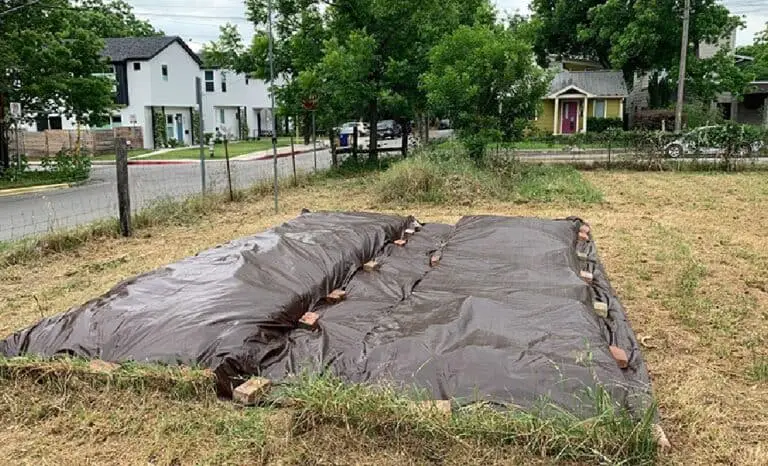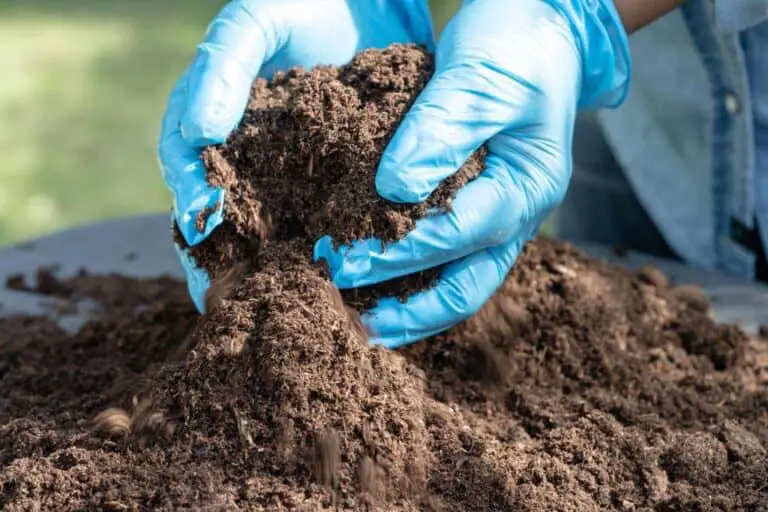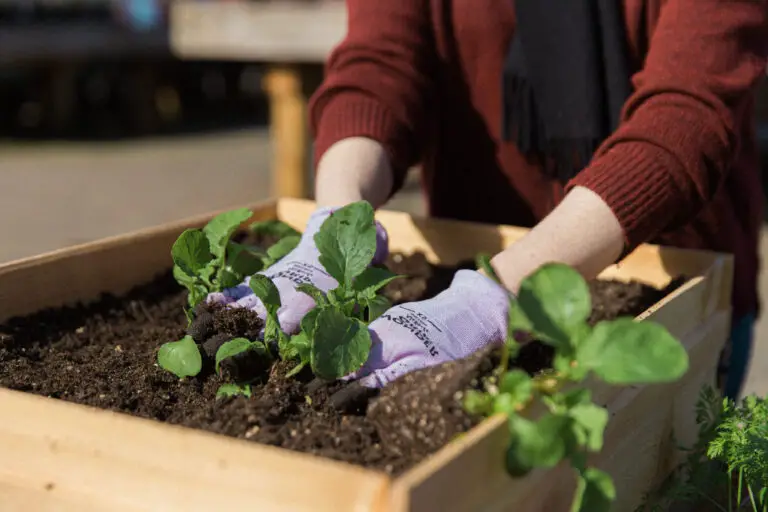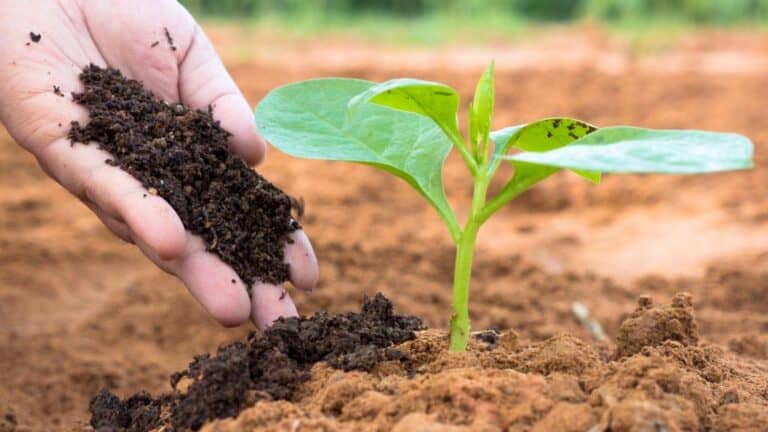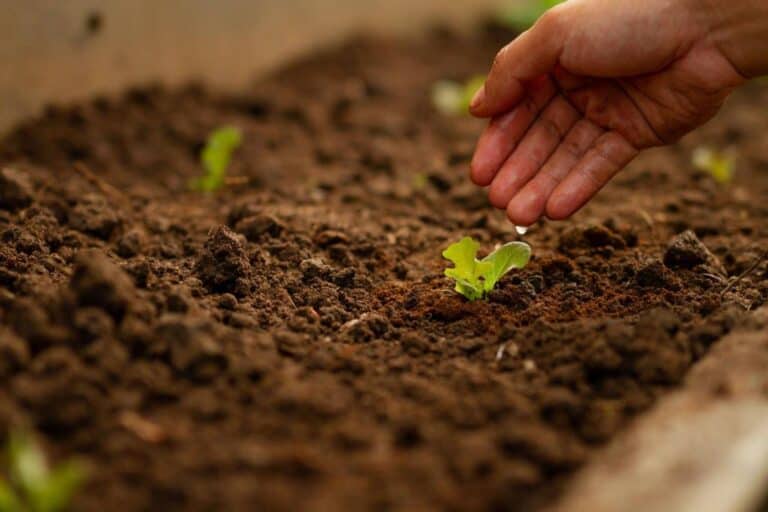Using Cow Manure in Vegetable Garden: Is It Safe and Effective?
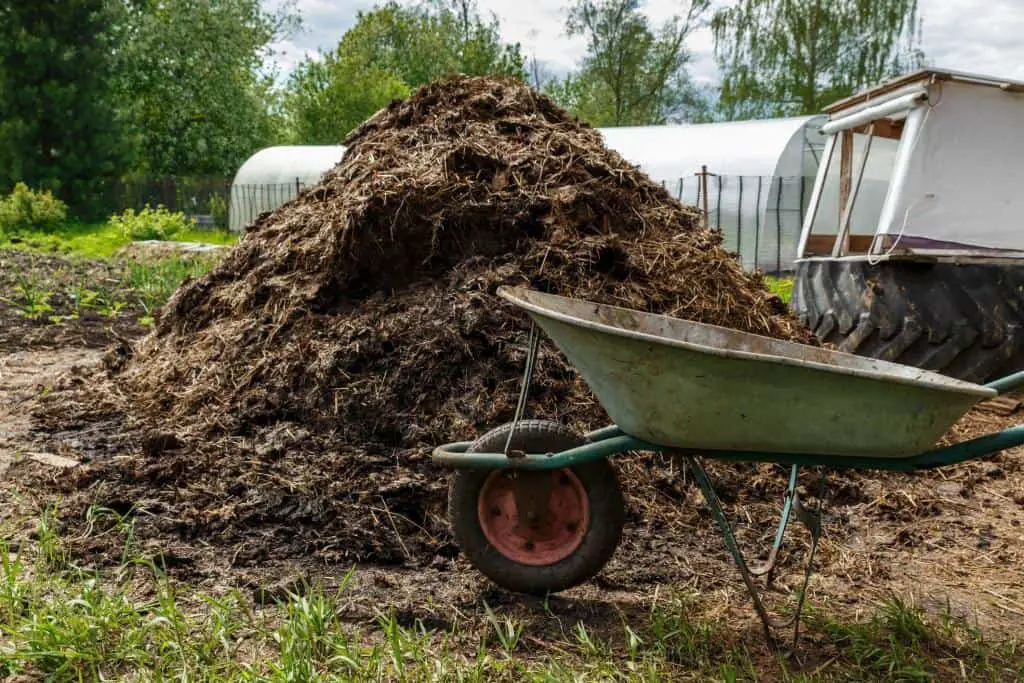
Are you passionate about growing your own vegetables, relishing the thought of farm-to-table freshness right in your backyard? If so, you’ve likely come across the age-old practice of using cow manure as fertilizer.
But before you don your gardening gloves and reach for that shovel, let’s address the pressing question on your mind: Is it safe and effective to use cow manure in your vegetable garden?
In this article, we’ll dig deep into the topic and unearth the truth about cow manure as a gardening aid. We’ll explore the safety considerations, the benefits it brings to your soil, and whether it truly lives up to its reputation as a reliable fertilizer.
So, if you’re curious to learn if cow manure is the missing ingredient for your thriving vegetable garden, join us as we separate fact from fiction and discover the secrets to cultivating nutritious, homegrown produce that will make your taste buds sing!
Understanding the Composition of Cow Manure
When it comes to nurturing our vegetable gardens, organic fertilizers have gained significant popularity. One such natural fertilizer is cow manure. Cow manure is not just a pile of waste; it contains valuable nutrients and organic matter that contribute to soil fertility. Here’s what you need to know about its composition:
- Nutritional content: Cow manure is rich in essential nutrients like nitrogen, phosphorus, and potassium, which are vital for plant growth.
- Organic matter: The organic matter in cow manure enhances soil structure, promotes nutrient retention, and improves water infiltration and drainage.
- Pathogens and weed seeds: It’s important to be aware that cow manure may contain pathogens and weed seeds, which can pose risks if not handled properly.
The Benefits of Cow Manure as Fertilizer
Cow manure has been used as a natural fertilizer for centuries. It is rich in essential nutrients that plants need to grow and thrive. Here are some of the benefits of using cow manure in your vegetable garden:
- Nutrient-rich: Cow manure contains a wide range of nutrients, including nitrogen, phosphorus, potassium, and organic matter. These nutrients are essential for plant growth and development.
- Improves soil structure: Cow manure helps improve soil structure by increasing its water-holding capacity and enhancing drainage. It also promotes the growth of beneficial microorganisms in the soil.
- Slow-release fertilizer: Unlike synthetic fertilizers, cow manure releases nutrients slowly over time. This gradual release ensures that plants receive a steady supply of nutrients, reducing the risk of nutrient leaching.
- Organic and environmentally friendly: Cow manure is a natural and renewable resource, making it an eco-friendly choice for gardeners. It helps reduce reliance on synthetic fertilizers, which can have detrimental effects on the environment.
Is Cow Manure Safe for Vegetable Gardens?
Using cow manure as fertilizer is generally safe for vegetable gardens, but certain precautions should be taken to ensure food safety. Here are some guidelines to follow:
- Composting: Before using cow manure in your vegetable garden, it is recommended to compost it first. Composting helps break down the manure and kill any potential pathogens, making it safer to use. Ensure that the composting process reaches temperatures above 140°F (60°C) to effectively eliminate harmful bacteria.
- Avoid fresh manure: Fresh cow manure contains high levels of nitrogen and can be too potent for delicate vegetable plants. It is advisable to use composted cow manure or allow fresh manure to age for at least six months before applying it to your garden.
- Proper handling: When handling cow manure, it is essential to practice good hygiene. Wear gloves and wash your hands thoroughly after working with manure to minimize the risk of bacterial contamination.
- Application timing: Apply cow manure to your vegetable garden well in advance of planting. This allows sufficient time for the nutrients to integrate into the soil and reduces the risk of direct contact between the manure and edible parts of the plants.
- Pathogen risks: Cow manure can carry harmful pathogens such as E. coli and salmonella. To minimize these risks, proper composting techniques should be followed.
- Composting techniques: Composting cow manure at high temperatures (above 140°F or 60°C) for a sufficient duration helps eliminate pathogens and break down weed seeds.
- Well-aged and composted manure: It is recommended to use well-aged and properly composted cow manure to ensure its safety for vegetable gardens.
Read: Compost Be Used as Mulch
How to Use Cow Manure in Your Vegetable Garden
Now that we’ve established the safety aspects of using cow manure, let’s explore how to incorporate it into your vegetable garden effectively. Follow these steps for optimal results:
- Assess soil condition: Before adding cow manure, assess the condition of your soil. Perform a soil test to determine its pH level and nutrient content. This information will help you determine the appropriate amount of cow manure needed.
- Prepare the soil: Clear the area of any weeds or debris. Loosen the soil using a garden fork or tiller. This will create an optimal environment for the cow manure to blend with the soil.
- Apply cow manure: Spread a layer of composted cow manure evenly over the garden bed. Aim for a thickness of about 1 to 2 inches. Avoid piling the manure directly around the stems of plants to prevent burning.
- Water the garden bed: After applying the cow manure, water the garden bed thoroughly. This helps the nutrients from the manure to seep into the soil and encourages their absorption by the plant roots.
- Incorporate the manure: Using a garden fork or a tiller, gently work the cow manure into the top few inches of fertile topsoil. This ensures that the nutrients are distributed evenly and helps improve soil structure.
- Mulch: Consider adding a layer of organic mulch, such as straw or wood chips, over the garden bed. Mulching vertical or horizontal helps retain moisture, suppress weed growth, and gradually releases nutrients as it breaks down.
- Monitor and maintain: Regularly monitor the moisture level of the soil and adjust watering accordingly. Additionally, keep an eye out for any signs of nutrient deficiencies or pest infestations in your vegetable plants. Supplement the soil with additional organic fertilizers if necessary.
Alternatives to Cow Manure
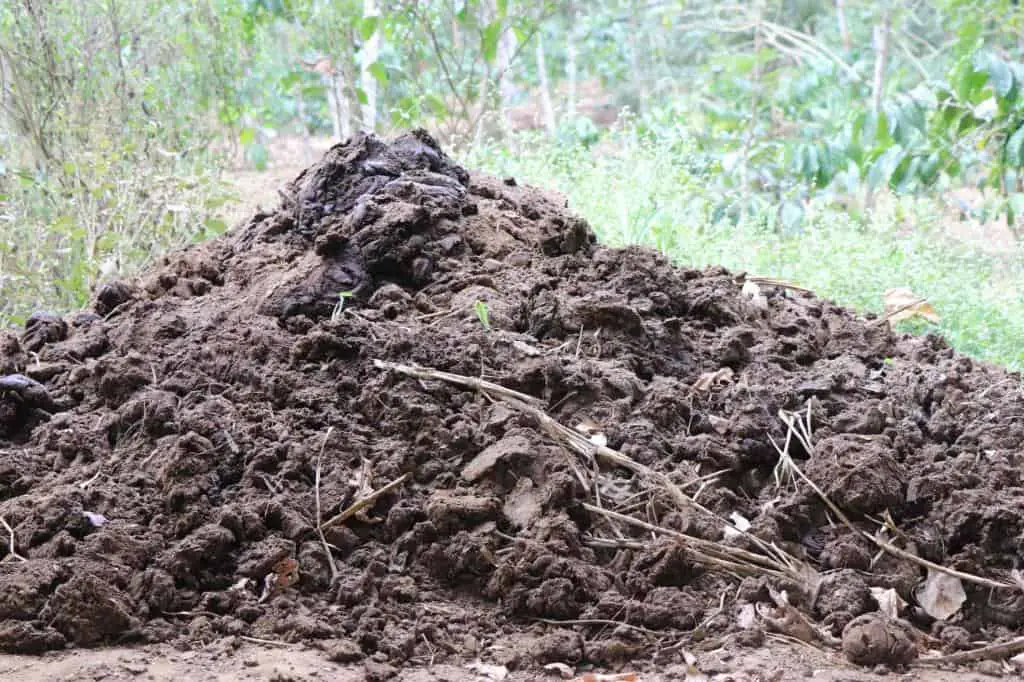
While cow manure is a popular choice, there are other organic fertilizers you can consider for your vegetable garden. Here are a few alternatives:
- Other Animal Manures: Besides cow manure, animal manures from sources such as chickens, horses, or rabbits can be excellent organic fertilizers. Each type of manure offers its unique nutrient profile, so you can choose based on availability and the specific needs of your plants.
- Plant-Based Compost and Mulch: Compost made from kitchen scraps, yard waste, and plant materials is an excellent source of organic matter and nutrients. Additionally, using mulch made from shredded leaves or straw can help improve soil fertility and moisture retention.
- Incorporating Other Organic Materials: Various organic materials, such as fish emulsion, bone meal, or kelp meal, can supplement the nutrient content of your soil. These materials provide additional minerals and trace elements that can benefit your vegetable plants.
Common Misconceptions about Cow Manure in Vegetable Gardens
Let’s debunk a few common misconceptions surrounding the use of cow manure:
- Myth: Cow Manure Causes Bad Odor in the Garden
When cow manure is properly composted and applied in appropriate quantities, it does not emit a strong odor. Foul smells usually arise when manure is not composted or applied excessively.
- Myth: Fresh Cow Manure is Safe to Use Directly on Vegetables
Fresh cow manure contains high levels of harmful bacteria and can potentially contaminate vegetables. Always compost cow manure thoroughly or use well-aged, composted manure to ensure its safety.
- Myth: Cow Manure Attracts Pests and Insects
While it’s true that manure can attract flies or other insects, incorporating it into the soil minimizes this issue. Properly mixed and integrated manure poses minimal risk of attracting pests.
Where to Find Reliable Sources of Well-Aged Cow Manure?
To ensure the quality and safety of cow manure, it’s important to find reliable sources. Consider the following options:
- Local Farms: Connect with nearby farms that practice responsible manure management. They may be willing to provide well-aged cow manure for your vegetable garden.
- Livestock Owners: If you know someone who owns cows or livestock, inquire about obtaining their well-aged manure. This can be a win-win situation for both parties.
- Garden Centers or Nurseries: Some garden centers or nurseries offer commercially prepared cow manure products that have undergone proper composting and aging processes.
Proper Storage and Composting Techniques at Home
If you have access to fresh cow manure, it’s essential to properly compost it before using it in your vegetable garden. Here’s how:
- Create a Compost Pile: Start by forming a compost pile or bin in a suitable area of your garden. Ensure proper air circulation and drainage to facilitate decomposition.
- Layering: Alternate layers of cow manure with carbon-rich materials such as dry leaves, straw, or shredded paper. This helps balance the carbon-to-nitrogen ratio and promotes proper decomposition.
- Moisture and Turning: Maintain proper moisture levels in the compost pile by occasionally watering it. Regularly turn the pile every few weeks to aerate and speed up the composting process.
- Composting Duration: Composting cow manure typically takes several months to a year, depending on factors like temperature, moisture, and the size of the compost pile. Ensure the compost reaches a sufficient temperature (above 140°F or 60°C) to kill any potential pathogens.
- Testing the Compost: To ensure the compost is well-aged and ready to use, check for a dark, crumbly texture, earthy smell, and absence of recognizable manure pieces.
Case Studies and Success Stories of Using Cow Manure in Vegetable Gardens
Real-life experiences can provide valuable insights into the benefits of using cow manure in vegetable gardens. Here are a few case studies and success stories:
- The Smith Family’s Abundant Vegetable Harvest: The Smith family, avid gardeners, incorporated well-aged cow manure into their vegetable garden. They experienced increased plant vigor, larger yields, and improved soil fertility. Their bountiful harvests of tomatoes, peppers, and cucumbers were a testament to the effectiveness of cow manure as a fertilizer.
- Community Garden Project Thrives with Cow Manure: A community garden project in a suburban neighborhood utilized cow manure donated by a local farm. With proper composting and application techniques, the garden flourished, providing fresh produce for the community while reducing waste. The success of this project showcased the benefits of using cow manure on a larger scale.
- Organic Farm’s Sustainable Practices: An organic farm integrated cow manure into their crop rotation plan. By applying composted cow manure as part of their organic fertilization program, they witnessed improved soil structure, increased nutrient availability, and higher crop yields. The farm’s commitment to sustainable practices and the use of cow manure as a natural fertilizer exemplified the effectiveness and benefits of this organic approach.
These case studies highlight the positive outcomes that can be achieved when using cow manure in vegetable gardens. However, it’s important to remember that results may vary based on factors such as soil type, climate, and plant species. Experimentation and adaptation to your specific gardening conditions are key to maximizing the benefits of cow manure.
Conclusion
Using cow manure in your vegetable garden can be a safe and effective way to improve soil fertility and promote healthy plant growth. By following proper handling and composting practices, you can minimize the risk of potential pathogens and ensure the safety of your crops.
Remember to assess your soil’s condition, prepare the soil, apply the cow manure, and incorporate it properly. Monitor the garden’s moisture levels, address any nutrient deficiencies, and consider alternatives if cow manure is not available.
With these guidelines in mind, you can confidently harness the benefits of cow manure as a natural fertilizer, creating a thriving vegetable garden that yields bountiful and nutritious crops. Happy gardening!
FAQs
Is using cow manure in a vegetable garden safe for human health?
Yes, using well-aged and properly composted cow manure reduces the risk of pathogens and ensures its safety for vegetable gardens.
How does cow manure benefit the soil and the growth of vegetables?
Cow manure enriches the soil with essential nutrients, improves soil structure, enhances moisture retention, and promotes the healthy growth of vegetables.
Are there any specific vegetables that should not be fertilized with cow manure?
Most vegetables can benefit from cow manure, but it is advisable to avoid direct contact with leafy greens that are typically consumed raw to minimize the risk of contamination.
Can I use cow manure from conventional farms, or should I look for organic sources?
Both conventional and organic cow manure can be used, but ensure that it is well-aged and composted to reduce potential risks.
What are the potential environmental impacts of using cow manure as fertilizer?
Improper use or excessive application of cow manure can lead to nutrient runoff, which can harm water bodies and contribute to environmental pollution. Proper application and following local regulations can mitigate these impacts.
How can I ensure that cow manure is properly composted to eliminate pathogens?
Composting cow manure at high temperatures (above 140°F or 60°C) for a sufficient duration helps eliminate pathogens. Use a compost thermometer to monitor the temperature during the composting process.
Are there any regulations or guidelines regarding the use of cow manure in vegetable gardens?
Regulations and guidelines may vary by region or country. Check with local agricultural extension services or authorities to ensure compliance with any specific regulations or guidelines related to the use of cow manure in vegetable gardens.

